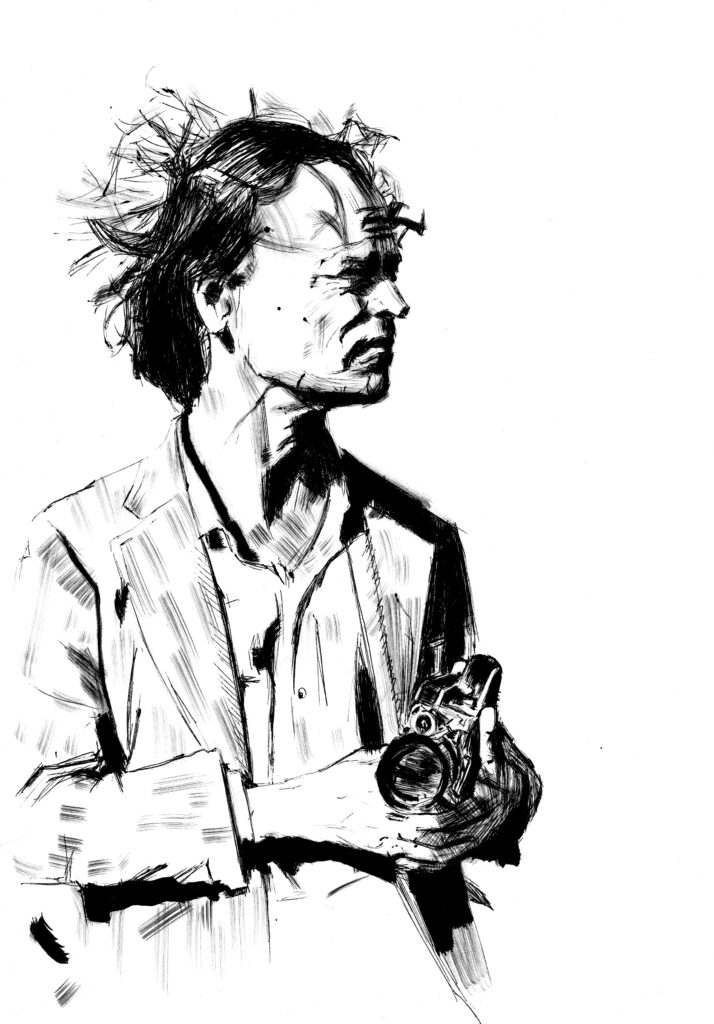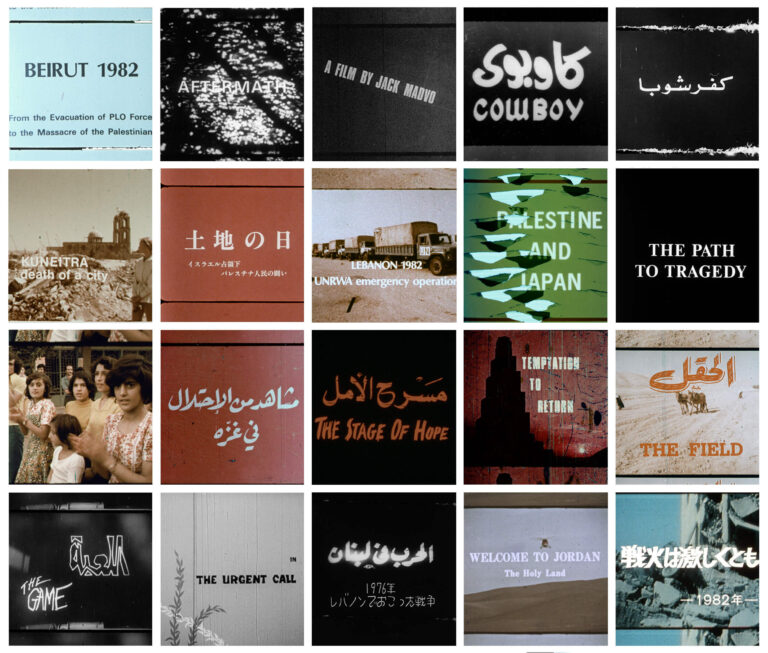Below are some questions to director Mohanad Yaqubi about his competition film R 21 aka Restoring Solidarity.
What kind of work did you do on the archival materials for your film?
R21 or the Reel no. 21 is a homage to the Japanese solidarity movement with Palestine, where a group of activists and filmmakers gathered, screened and safeguarded a collection of twenty 16 mm films that has been accumulating from the 60s till the 80s of the 20 century, the work that the film team did was basically to update the inventory that they have made, through digitizing these 20 films, translating them into Arabic and English, and make them available for re-circulation. As part of preparation of the distribution package, we decided to produce a new trailer for each film, and when i asked the editor to put them on a timeline, that’s when we realised that these is a film, not only about these films, but more about the motives and politics of the solidarity group that can be witnessed through their selection and curation of the films.
In the film you show how, through images, two populations can find a deep connection. So what do you think is the value of archive material from a historical and social point of view?
The idea that archives are a source of facts and histories is a deceiving one, archives can only provide us with traces, fragments of evidence, abstract images, text, and sounds, which allow us to construct a narrative, a story, and in this case, a hypothesis of a relationship between the struggles of two peoples, against imperial violence that is affecting both of these peoples. The American influence on the history and fate of these two people connects them in an unexpected way, both are struggling the outcomes of the 2nd WW, where Japan was bombed with a nuclear weapon, and Palestine with a zionist one, both acts intended to change the politics and geography, alienating both countries from its connection to the land and its traditions.
Would you suggest to young people and to a new audience a few titles of found footage and/or experimental films that have been pivotal for your education and training?
I might have a different approach to the concept of archive films, I think all films have archival quality, it’s related to the process of filmmaking itself, and precisely to the editing. When editing a film, we make an inventory of the filmed material, we create a structure in that we save the filmed material which allows us to reach them when needed, and we organize the selected media, or what I call, evidence and traces of the history of production, and we label them in order to produce a narrative, and this process repeats itself in every film, which is basically the process of creating archives, which contains a structure, inventory, and labeling, Also, a film is a capture of time that we encapsulate and distribute, which makes it an item that will go into a catalog, an inventory, and as a result, an archive.
So, I am more interested in films that challenge this structure, films that refuse to be archived, that have open endings, that are and can be subjected to alteration, and re-editing, that allow complex narratives to be added on, in general films that can be categorized as imperfect, as Julio espinosa describes, usually, they are films about unfinished struggles, incomplete, and still striving for interventions, many films I can add here, but mainly documentaries about workers strikes, revolutions, about political organizations, I like to see people assembling in big crowds, small gatherings, talking to each other, and many times, I like scenes from several films, and I imagine how would they be together in the same timeline.

